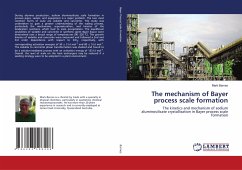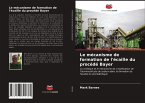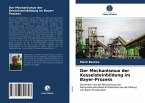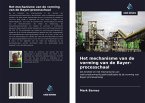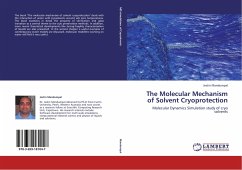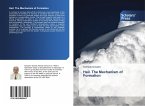During alumina production, sodium aluminosilicate scale formation in process pipes, vessels, and equipment is a major problem. The two most common forms of scale are sodalite and cancrinite. This study was undertaken to gain a greater understanding of the scaling process, particularly the mechanisms, supersaturation, and kinetics of the desilication reactions, which lead to scale precipitation. The equilibrium solubilities of sodalite and cancrinite in synthetic spent Bayer liquor were determined over a broad range of temperatures (90 -220 °C). The growth kinetics of sodalite and cancrinite were measured and followed a 2nd and 3rd order dependence with respect to SiO2, respectively, with corresponding activation energies of 30 ± 2 kJ mol-1 and 80 ± 5 kJ mol-1. The sodalite to cancrinite phase transformation was studied and found to be a solution-mediated process with an activation energy of 133 kJ mol-1. Overall, the level of scale on the heat exchangers may be reduced if a seeding strategy were to be adopted in a plant environment.
Bitte wählen Sie Ihr Anliegen aus.
Rechnungen
Retourenschein anfordern
Bestellstatus
Storno

